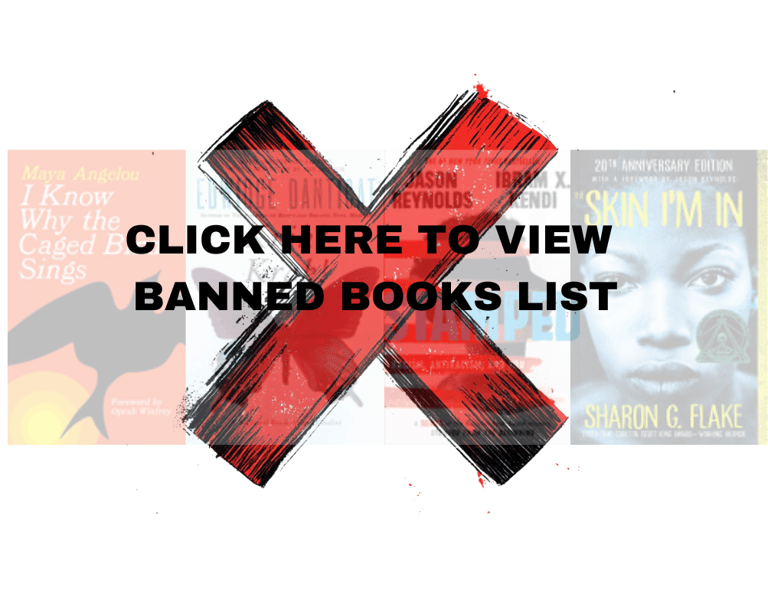
Banned & Challenged Books
Across the United States, there has been an unprecedented surge in book challenges and bans, especially in public schools. Since 2021, nearly 16,000 book bans have been documented, with over 10,000 occurring in the 2023–24 school year alone. These bans disproportionately target books dealing with race, gender identity, LGBTQ+ themes, and sexual content. Titles such as Gender Queer, All Boys Aren’t Blue, and The Bluest Eye are among the most frequently challenged. The movement is heavily concentrated in states like Florida, Texas, and Iowa, where new laws with vague or expansive definitions of “sensitive materials” have led to the removal of thousands of titles.
Importantly, most of these challenges are not from individual parents but are driven by coordinated efforts from political groups and advocacy organizations. About 72% of reported bans come from such organized campaigns. The federal government recently stepped back from enforcing protections against book bans, with the U.S. Department of Education dropping several related complaints in early 2025. In response, legal challenges and grassroots initiatives—like the Brooklyn Public Library’s Books Unbanned project—have emerged to resist the tide of censorship.
Public opinion, however, doesn’t necessarily support these bans. Polls suggest that a majority of Americans oppose censorship in schools. Advocates warn that removing these books not only stifles free expression but also denies students access to diverse perspectives and experiences. As federal oversight wanes, the battleground for intellectual freedom is increasingly shifting to local school boards, libraries, and courts.
Book Bans in America
In an alarming trend sweeping across our educational landscape, "The Reading Lens" has compiled a growing list of books by Black authors facing bans. This systematic removal of Black literature from shelves represents more than just administrative censorship—it's an erasure of crucial perspectives from our educational spaces. The targeting of Black authors echoes a disturbing historical pattern where the acquisition of literacy and knowledge by Black Americans was once criminalized, with severe punishments for those caught learning to read.
Black-owned bookstores have long served as vital community hubs, offering safe spaces where banned literature can be discovered and discussed freely. These establishments aren't merely retail operations—they're cultural institutions that preserve and celebrate Black literary traditions when educational systems fail to do so. As the titles appearing on the "Urban Butterfly Books " list continue to grow—spanning genres from children's picture books to academic texts—these bookstores become increasingly important sanctuaries of knowledge, providing access to the honest portrayals of Black experiences and historical truths that some would prefer to silence.
Banned and Challenged Books: When Black Voices Are Silenced
Subscribe to our newsletter




